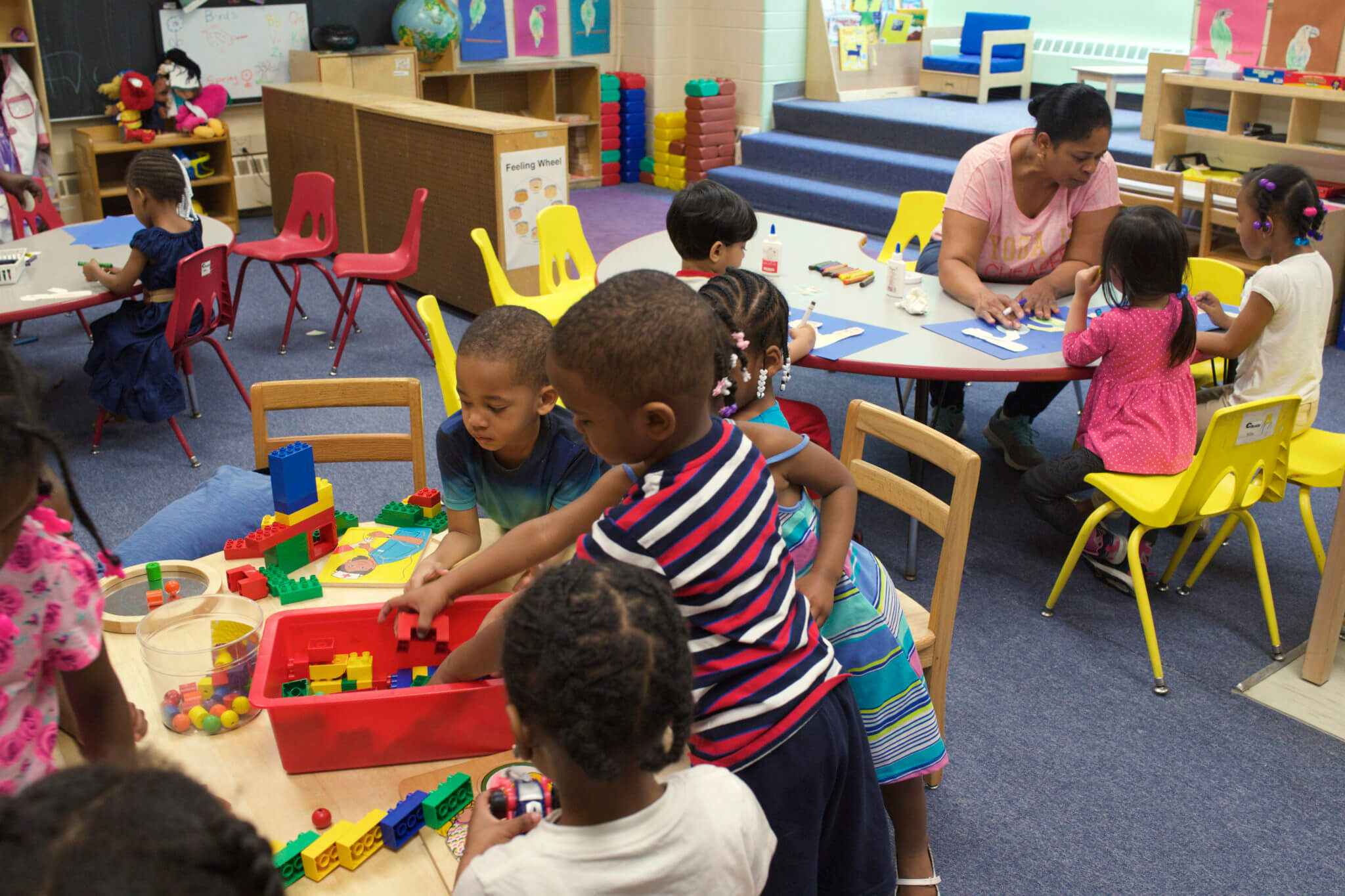Opportunities for Strategic Support of Detroit’s Young Children

This month, Detroit’s key Head Start agencies will submit applications to “re-compete” for federal dollars for this critical and comprehensive early childhood program. While the quest for these dollars is designed to be competitive, the agencies are anything but – they have been working together as trusted partners to align strategies that can better serve Detroit’s youngest children and connect individual applications where they can.
Five years ago, a similar competition process happened, but it was less collaborative. For the most part, agencies were not aligned. Topics like service territories became contentious. At that time, the feds selected four agencies to contract with – Matrix Human Services, New St. Paul Tabernacle, Starfish Family Services, and United Children and Families. One had directly contracted for Head Start programs previously. Three had not. All had years of experience in the field.
At that same time, a group of local foundations launched the Head Start Innovation Fund here at the Community Foundation for Southeast Michigan. The Innovation Fund has since grown to be an $11 million effort aimed at improving the quality of Head Start services and outcomes. Competitive grants to Head Start providers have supported system-wide needs, such as a peer learning network, the creation of an enrollment campaign, comprehensive data collection, and provision of resources across the Head Start grantees, including professional development and training to improve program quality.
Being home to the Innovation Fund has exposed the Foundation and our partners to a wider range of information about Head Start programs and how working together can be more effective for all. While these agencies are working hard, there are a lot of opportunities for other policy and government partners to have some helpful influence, too. Philanthropy won’t be the answer to challenges within the system – resource needs are larger than any amount a foundation can give.
As we look to launch a “refreshed” system for early childhood education for 2019, here are some ideas for our policy leaders of how we can make long-term change that will be helpful to all:
Better blend state and federal funding streams for early childhood
For Detroit to best position itself to get more federal dollars, we need to demonstrate that we do the best job we can of utilizing and leveraging the funds we already have. In 2016, Citizens Research Council of Michigan created a comprehensive Catalog of Early Childhood Funding in Michigan. It’s a complex landscape of funding, with multiple sets of requirements when sources are blended together. Yet, working through those complexities is worth it. It can help in meeting required matches, helping to draw down more funds into the community and ultimately serving more children more effectively.
Boost number of children with special needs in Head Start by streamlining IEP process
The national Head Start program serves highest risk children and requires that 10% of the seats be filled by children with special needs. Children with special needs can benefit significantly from early childhood education, helping to put them on a good path for learning in kindergarten and beyond. National rules require that the local school district serve as the authorizer of the Individualized Education Plan (IEP), which essentially “approves” the children for those spots, regardless of whether the school district is providing Head Start services itself.
The good news in Detroit is that, under its new leadership, the Detroit Public School Community District (DPSCD) takes this authorizer role seriously, and is looking at ways to better connect special needs children to Head Start seats more quickly. A grant was even made to DPSCD to boost its capacity to serve this population for the short-term. While staff is still sorely limited, it has helped some.
While there is important progress on this need, there is more work to be done. Seats should never go empty when we know there are children to fill them.
Creative solutions to facility needs
Detroit is unfortunately unique in that facilities for Head Start programming are not provided at low cost or no cost by the local city or school district. Many landlords struggle to maintain their buildings. In many other communities, such a relationship exists, primarily to encourage the Head Start children to enroll in the local public schools as they approach kindergarten.
Detroit Head Start agencies have been plagued by problems with facilities, often affecting the quality of services that they can provide children. There are some bright spots emerging, however: the Kresge Foundation built a grant program at IFF to assist local early childhood centers with improving facility quality, and they are supporting a state of the art early childhood center on the Marygrove campus as well. The Mayor’s office has named early childhood education as a growing priority in partnership with the Hope Starts Here initiative. Hopefully these discussions and efforts will examine how systemwide solutions can be found to the facility challenges.
Michigan is at the start of a new administration. Detroit is about to start new Head Start contracts. The agencies currently serving Detroit’s children are working together more cohesively than ever before. Foundations and local government have called out early childhood as a priority. We know that there are ways to better build and sustain a system of early childhood education. If there was ever a time to seek to make these systemic shifts, now is the time. I hope that our newly elected officials and others will keep some of these systemwide opportunities in mind as we work together to provide our youngest citizens with a solid path for learning.
Learn More about the Head Start Innovation Fund

Katie G. Brisson
Vice President, Program
kbrisson@cfsem.org
